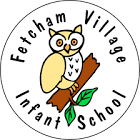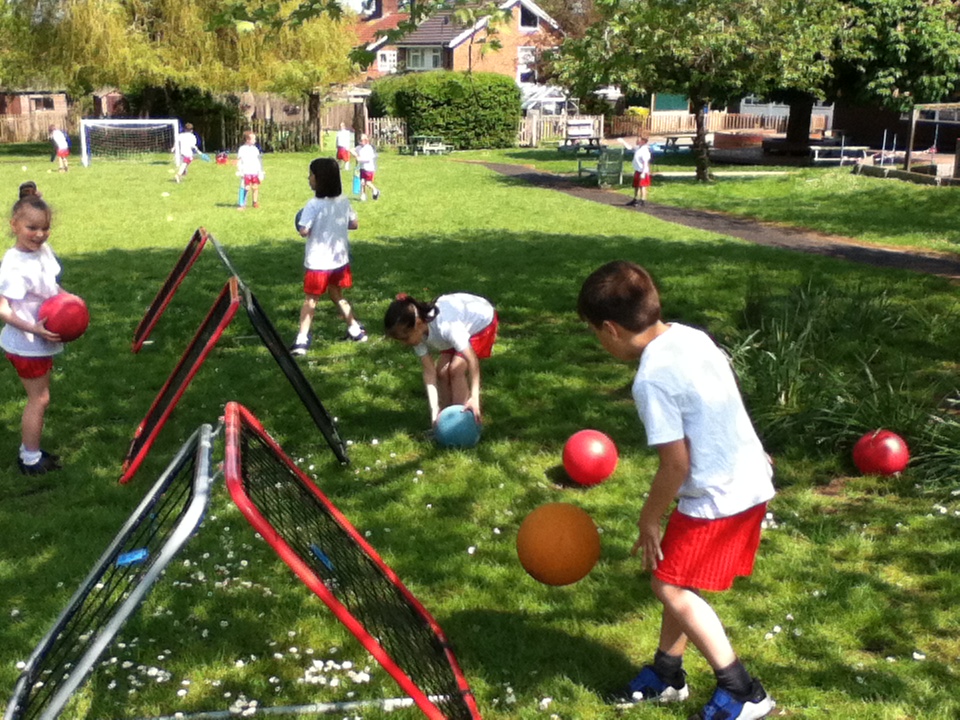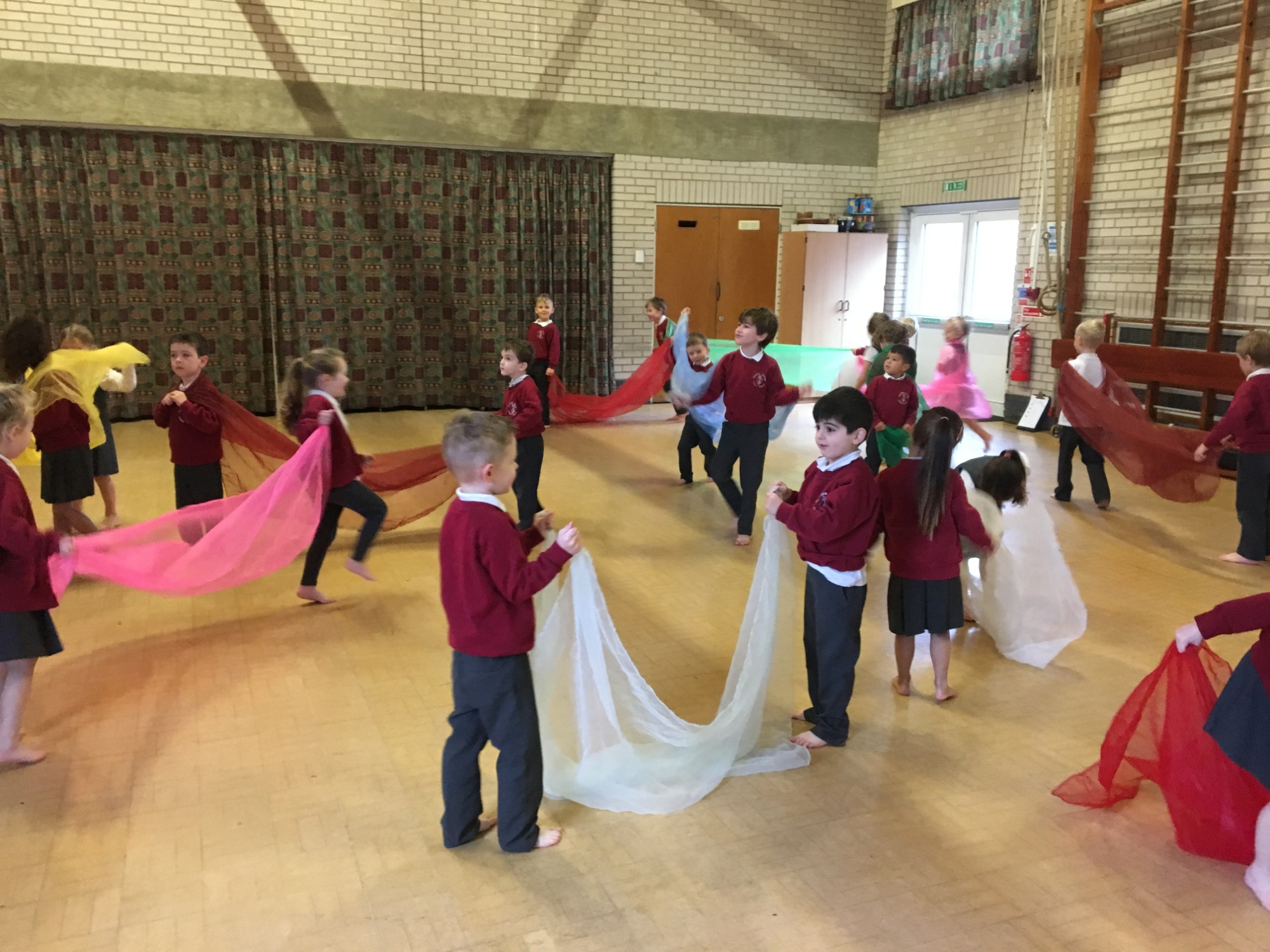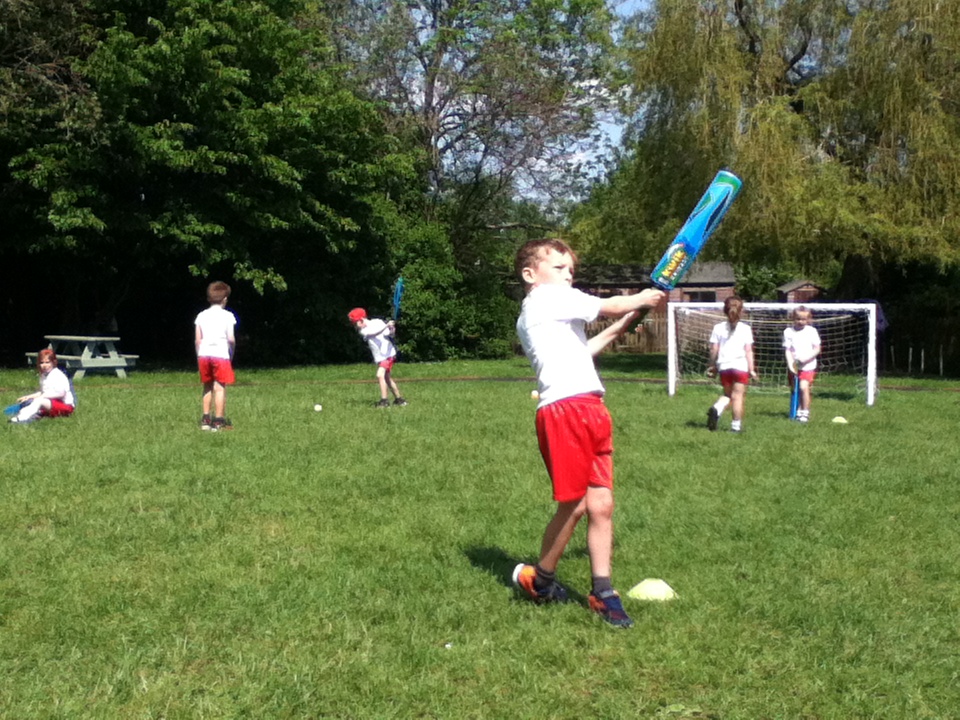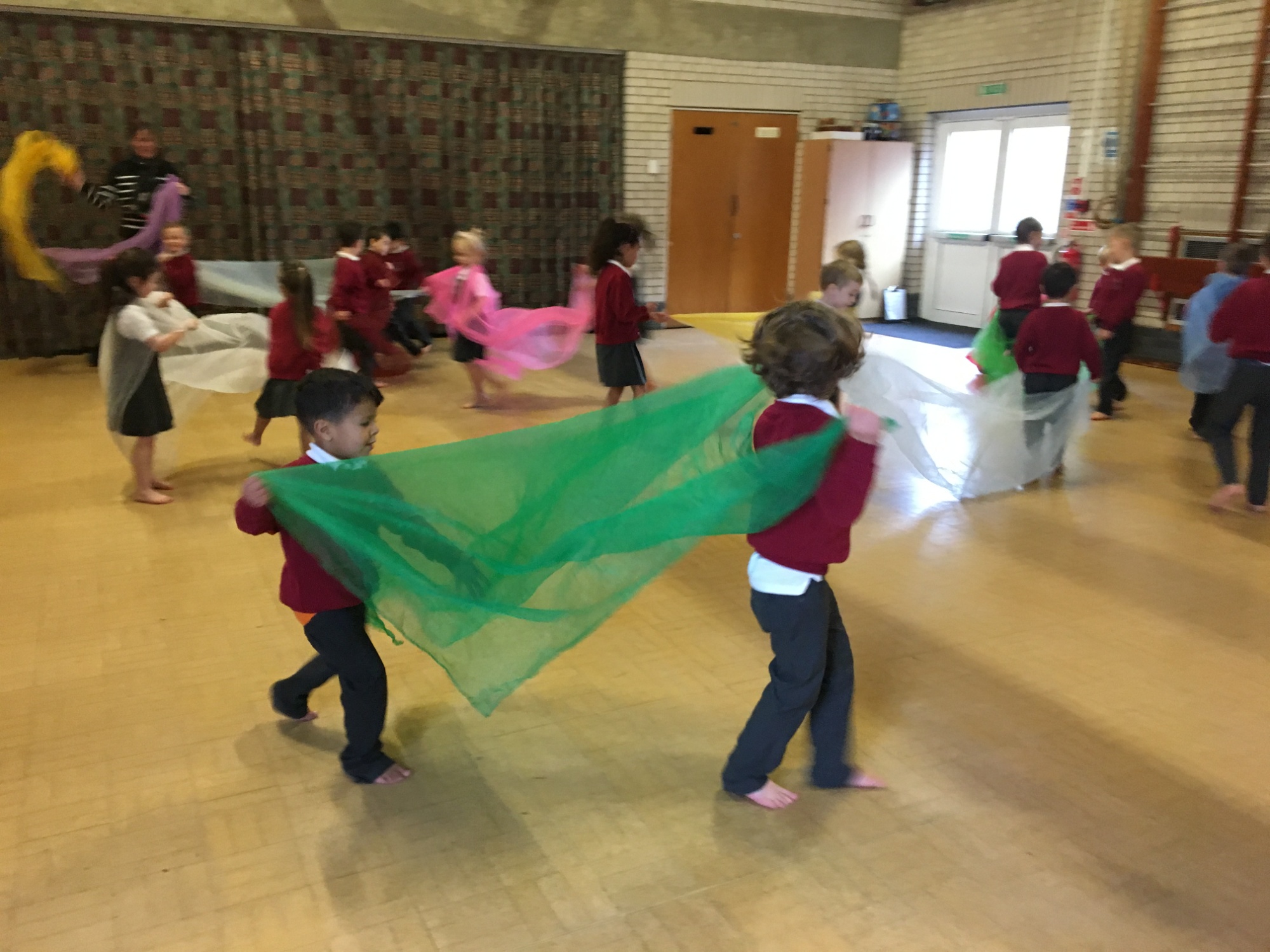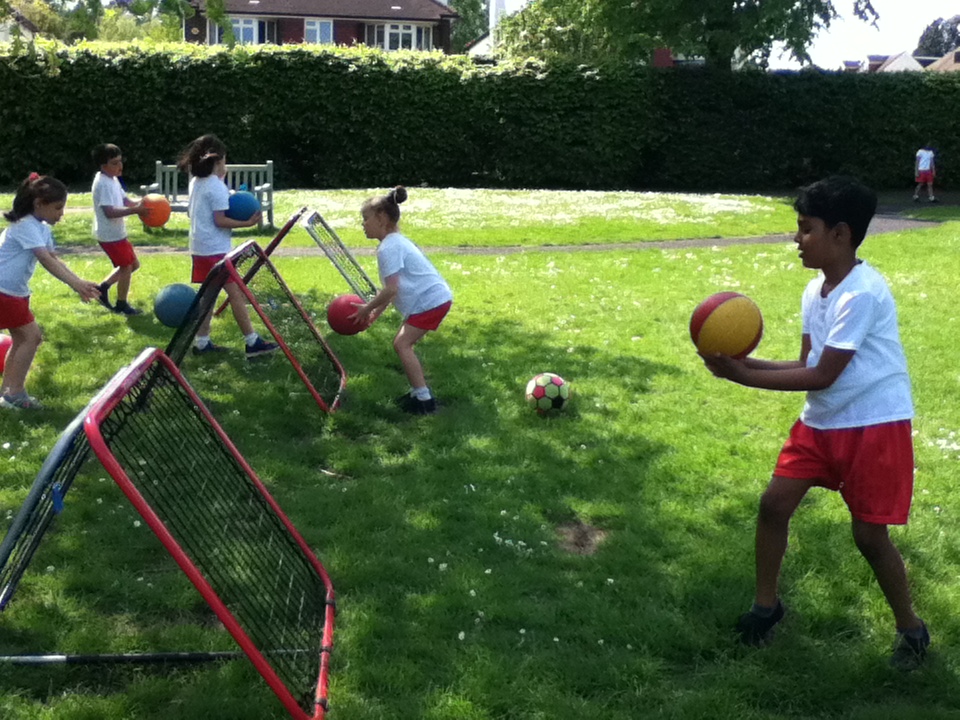PE (Physical Education)
Our aim at Fetcham Village Infant School is that every child has the opportunity to develop their fundamental movement skills. These are centered on agility, balance and coordination, beginning to introduce healthy and friendly competition and cooperative learning. Children will become physically literate by developing these fundamental skills, building up the blocks that underpin the ability to play and be involved in many different sports. In EYFS and Key Stage One, Fetcham Village Infant school uses the ‘Val Sabin’ scheme to increase the children’s ability to move more confidently and effectively. It helps to assist children undertake everyday challenges, play, learn more effectively and participate successfully in Physical Education and Sport. Recognising high quality teaching and learning within PE and Sport is characterised by a broad, holistic approach; Fetcham aims to develop the whole child. The school uses a multi ability approach to develop a range of personal, social, physical, cognitive and creative abilities. Every child learns at their own speed and that over time each child will reach the standards by the time they finish Key Stage One.
In Addition, our whole school approach to learning is through our own unique CLOVER principles. This underpins the fundamentals of teaching physical education in our school. All children and staff have the opportunity to be physically active throughout the day. Here are many examples of how we do it at FVIS:
The day begins with ‘Wake and Shake’ and gives the children and staff an opportunity to feel a sense of belonging, fun, happiness and movement.
The daily run provides another opportunity for all children to be active where they can set their own personal goals and targets. Opportunity is also given to reflect on the effect exercise has had on their bodies and minds. At playtimes the running track is always open and a lunch time running club has been set up and available to all. Children’s personal achievements are celebrated and recognised in the Celebration assembly. At lunch play the children are supported by our Sports Coach to become physically active by co-operating with each other and setting up their own mini team games.
The immediate environment provides a wealth of opportunities to move and explore – reception outdoor area, playground, wood, hall and the field. These areas allow children to take risks, attempt new skills, compete against each other or themselves and learn from their peers. The children will experience success and challenges and their learning is supported through lessons carefully delivered by teaching staff.
The school also sets up an environment to be physically active by providing after school clubs – multi skills, tennis, taekwondo and dance. P.E assemblies celebrate worldwide sporting events and sporting heroes who help inspire children to be the best they can be. Celebration assembly recognises classes who walk, cycle or scoot to school – The Green Footprint.
We invite the community into school to share traditional events such as dance routines in the Christmas play, Maypole and country dancing at the Mayfair and Sports Day and multi skills afternoon.
The P.E Curriculum has been carefully planned for progression across all year groups supported by Val Sabin Scheme of Work. Teachers have clear expectations of the end points children need to reach ( see curriculum map). During the lessons teachers build upon childrens’ prior learning and re-visit learning throughout the lesson. Lessons are carefully structured to allow time for teachers to deliver, observe and assess the children’s movements. For example, warm ups - Assessment - heart(life long learner), giving time for the children to explore independently - Assessment -head (creative thinking), skill based activity - Assessment - Hands (skill), partner work/collaboration - Assessment - Hands (skill) and head (creative thinking) and a cool down - Assessment - heart(life long learner). Each unit of work allows for children to develop their skills in a variety of contexts and lots of opportunities are given for children to think of their own movements, practise and adapt them. In games lessons children are given the bigger picture of the sport i.e. hockey, tennis etc but much time is spent on developing the key skills of sending and receiving, dribbling, passing and target aiming to allow the children to access all sports.
Children will acquire how to:
-
To develop and explore physical skills with increasing control and co-ordination.
-
To realise their full potential and to develop movements, co-ordination, confidence and body awareness in a range of contexts.
-
To develop co-operation, team work and communication skills through a variety of physical activities.
-
To be physically active for sustained periods of time.
-
To engage in competitive sports and activities.
-
To develop children’s approach to peer and self-assessment.
-
To develop an understanding of fitness and health and the benefits of a healthy and active lifestyle.
-
To promote responsible attitudes towards the safety of themselves and others and to develop an appreciation of safe practice in all movement activities.
Children will develop skills:
-
To master basic movements including running, jumping, throwing and catching, as well as developing balance, agility and co-ordination, and begin to apply these in a range of activities
-
To participate in team games, developing simple tactics for attacking and defending
-
To perform dances using simple movement patterns.
We measure the impact of our curriculum through the following methods :
-
Delivering an age-appropriate curriculum content using the Hands (skill), head (creative thinking), heart(life long learner) assessment approach throughout the lessons.
-
Interviewing the children about their learning (pupil Voice)
-
Annual reporting of standards across the curriculum.
-
On-going feedback to the children and from the children during the lessons.
-
Children will have a love for P.E and have an awareness of how they can use this in their own lives.
